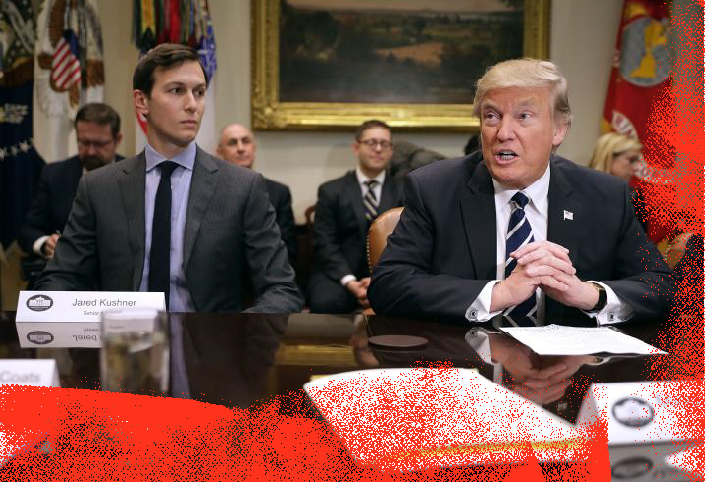Jared Kushner joined the Trump administration as a senior adviser in January 2017 with a wide range of foreign policy responsibilities, including pursuing Middle Eastern peace and acting as the envoy to China. However, his past, and his business ties, raise serious concerns about his conflicts of interest.
Kushner divested his interest from the family’s office building at 666 Fifth Avenue in Manhattan to a family trust, but the building remains an important asset in his family’s company, Kushner Companies. Kushner’s vast White House portfolio gives him influence over American foreign policy, but as his family seeks foreign investment for the struggling property, are those investors influencing him?
The Kushner Cos.’ debts have left Kushner — and by extension the United States — vulnerable to foreign influence. The Washington Post reported on Feb. 27 that Israel, China, Mexico and the United Arab Emirates all had privately discussed ways to manipulate Kushner “by taking advantage of his complex business arrangements, financial difficulties and lack of foreign policy experience.” Will Kushner treat countries that invest in his family’s company more favorably?
Financial Troubles
In 2007, Kushner bought the 666 Fifth Avenue property for $1.8 billion, right before the financial crisis hit. The family only paid $50 million at the time of the sale, and borrowed the rest to cover its unprecedented cost.
The complex has since struggled; in 2017, nearly a third of its offices lay vacant and the building lost an estimated $24 million. Today, Kushner Cos. holds about 50 percent of the $1.2 billion mortgage — due February 2019 — for which it has made no payments. Now, the Kushners are looking for another $4 billion in investment to refinance the current mortgage debt and completely renovate the building to make it profitable.
Vornado Realty Trust, the firm that owns the other half of the building, is planning to sell its shares, and Kushner Cos. is in talks to purchase those shares to give it full ownership of a building it couldn’t — and still can’t — afford on its own. So they turn to foreign investors, a potentially dangerous problem when the face of Kushner Cos. is the President’s top adviser.
Federal investigators are looking into a secret meeting between Kushner and Sergey Gorkov, the chief executive of a Russian bank. While Kushner said it was a diplomatic encounter, Gorkov said he met with Kushner as head of Kushner Cos.
Kushner’s firm looked to Chinese and Qatari investors both closely tied to their respective governments. Around the time that Trump secured the Republican nomination for president, Kushner met with representatives of Anbang Insurance, a Chinese insurance firm with close connections to the country’s ruling party, to discuss a $400 million investment in the project. Under the deal, which ultimately failed, the Kushners would have received $400 million and Anbang would have taken out a $4 billion loan for the reconstruction.
Kushner’s father Charles Kushner negotiated directly with the former Prime Minister of Qatar to invest in the building. In April 2017, he agreed to invest $500 million through his private investment firm, as long as the Kushners could raise the rest of the money. However, after the Chinese investment fell through, Qatari investors pulled out of the project as well.
Conflicts of Interest in the White House
One month after the Qatari financing deal fell through, Kushner backed a group of Middle Eastern countries in a “diplomatic assault” of Qatar, which resulted in a blockade against Qatar, according to The Intercept. Kushner also is reported to have blocked then-Secretary of State Rex Tillerson’s efforts to resolve the diplomatic crisis.
On March 12, NBC News reported that Qatari officials had proof that Kushner was influenced by the United Arab Emirates, including evidence of secret meetings. Qatari officials reportedly believe that the secret meetings and the failure of the financing deal influenced Trump’s support of the blockade against their country.
After Qatar backed out of a deal to invest in the Kushner family’s building, Kushner got his father-in-law president to back a diplomatic assault of the country. The family’s billion dollar loan is due in less than a year. Which country will be hurt next by Kushner’s financial issues? Or, will it be us?
Jared Kushner
Donald Trump has entrusted his son-in-law — who has no government experience, no necessary security clearance, large foreign debts, a rocky relationship with the truth, and a host of conflicts of interest — with one of the most influential jobs in the world.
